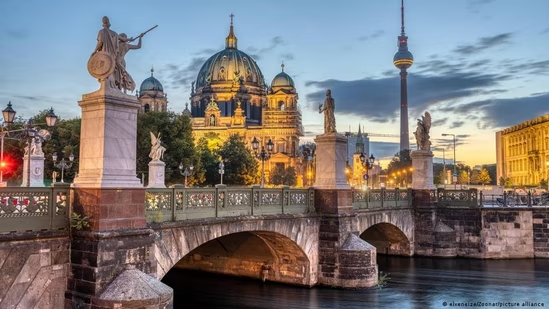

maresiliencycenter.org – Berlin, the capital city of Germany, stands as a testament to resilience, innovation, and transformation. Known for its tumultuous history, vibrant cultural scene, and relentless pursuit of change, Berlin has evolved over the decades into a symbol of unity and progress. This article explores the multifaceted transformation of Berlin, highlighting its historical significance, cultural evolution, and modern-day dynamism.
Berlin’s history is marked by profound changes, from its role as the capital of the Prussian Empire to the epicenter of the Cold War. After World War II, the city was divided into East and West Berlin, symbolizing the ideological divide between communism and capitalism. The fall of the Berlin Wall in 1989 was a pivotal moment that not only reunited the city but also symbolized the end of Cold War tensions, setting the stage for transformation.
Berlin’s cultural landscape is as diverse as its history. The city’s transformation is evident in its thriving arts scene, which attracts creatives from around the world. From world-class museums like the Pergamon and the Berlinische Galerie to vibrant street art in neighborhoods like Kreuzberg, Berlin celebrates both high art and grassroots creativity. The city’s cultural renaissance is further fueled by annual events such as the Berlin International Film Festival and the vibrant nightlife that echoes Berlin’s eclectic spirit.
Berlin’s skyline is a blend of historical landmarks and modern architectural marvels. The restoration of historical sites like the Brandenburg Gate and the Reichstag coexists with contemporary structures such as the Berliner Philharmonie and the futuristic Sony Center. This fusion of old and new reflects Berlin’s ability to honor its past while embracing the future.
Berlin’s economy has undergone significant transformation, shifting from traditional manufacturing to becoming a hub for technology and innovation. The city is now home to a burgeoning startup ecosystem, attracting entrepreneurs and investors globally. Areas like Mitte and Friedrichshain have become tech hotspots, fostering a culture of innovation and entrepreneurship that drives Berlin’s economic growth.
Berlin’s transformation extends to social and political realms. The city has become a symbol of progressive policies and inclusivity, championing sustainability, diversity, and social justice. Initiatives to promote affordable housing, green spaces, and public transportation reflect Berlin’s commitment to improving the quality of life for its residents.
Berlin’s journey of transformation is a testament to its resilience and adaptability. As a city that has continually reinvented itself, Berlin serves as a beacon of hope and progress. Its rich history, vibrant culture, and forward-thinking ethos make it a unique and inspiring destination. Berlin truly embodies the spirit of transformation, reminding us that change is not only possible but also essential for growth and evolution.
Saat kamu menyeruput kuah tomyam yang mengepul, kamu tidak hanya menikmati makanan—kamu merasakan tradisi dan…
maresiliencycenter.org - Jakarta, kota metropolitan yang selalu sibuk, menyajikan berbagai pilihan kuliner yang menggugah selera.…
Tulungagung, sebuah kabupaten di Jawa Timur, tengah menjadi sorotan link slot gacor warganet berkat harga…
Flavonoid adalah senyawa bioaktif yang ditemukan secara alami dalam berbagai buah, sayuran, teh, dan cokelat.…
Rica-rica adalah salah satu hidangan khas Manado, Sulawesi Utara, yang terkenal dengan rasa pedas dan…
Pernah nggak sih kamu merasa ngantuk padahal baru aja duduk di meja kerja? Atau malah…